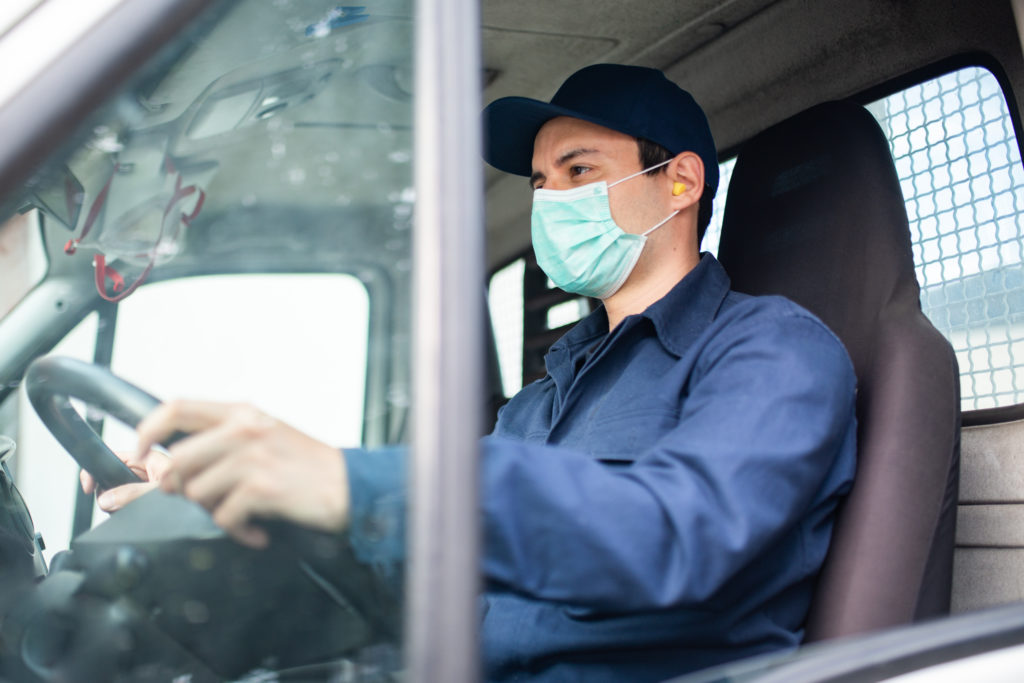
Right now, many major pharmaceutical companies are cooperating with transportation firms in order to deliver the first rounds of COVID-19 vaccinations. Among the first people to receive such vaccines are those working in essential and critical jobs–which could include truck drivers.
Operation Warp Speed–the name for these early distribution efforts–have been slated to begin in mid-December. By the end of 2020, the country could see at least 40 million doses having been delivered, according to the Centers for Disease Control and Prevention.
The Advisory Committee on Immunization Practices held a virtual open meeting in an emergency webcast on December 1st in order to vote on a temporary recommendation as to who will receive the vaccine first.
The committee decided, in a 13-to-1 vote, that health care personnel and residents of long-term care facilities should be the first to get the vaccine during its Phase 1A release. They also voted that essential workers–potentially including truckers–would comprise the entirety of Phase 1B’s deployment.
Phase 1C will include adults over the age of 65 and adults with high-risk medical conditions.
Now, the advisory committee’s interim recommendation will go to Robert Redfield, CDC Director, for its final approval.
On the day of the webcast, American Trucking Associations sent letters to the White House, President-elect Joe Biden, the CDC’s Advisory Committee on Immunization Practices, and the National Governors Association in an effort to convince them to take into account the essential status of the trucking industry while the national vaccine distribution strategy is decided upon within the government. In the letters, ATA claimed that truckers must be considered critical infrastructure workers and be among the first vaccinated.
“As the trucking industry is called upon to deliver vaccines across the country, it is imperative that truck drivers have prioritized access to the vaccine to minimize the potential for supply chain delays and disruptions,” said Bill Sullivan, ATA Executive Vice President for Advocacy, in the letter. “Our nation’s efforts to successfully confront the COVID-19 pandemic depend on the resilience and integrity of the transportation network. As we saw at the outset of the pandemic, when supply chains are disrupted, consequences are fast to follow.”
The U.S. Department of Transportation has been meticulously preparing for the safe and efficient transportation of the vaccine, once it is approved by the Food and Drug Administration, in order to avoid said consequences.
“The Department has laid the groundwork for the safe transportation of the COVID-19 vaccine and is proud to support this historic endeavor,” said Elaine Chao, U.S. Transportation Secretary.
UPS Inc., DHL, and FedEx Corp. have also said that they are already establishing their distribution plans, as are many other major transportation providers. Logistics companies that will need to transport the vaccine have been building new cold storage facilities where possible in order to have enough space for the vaccine.
Former truck driver, current trucking industry expert, and University of Minnesota-Morris economist and professor, Stephen Burks, who is also a recent COVID-19 survivor, maintains that it is imperative for truck drivers to be among the first to receive the vaccine.
“Medical personnel taking care of COVID patients would be the first in line, and that would make perfectly good sense,” he said. ”And there are essential workers, such as truck drivers and grocery store workers, who have to be interacting with people to make the basics of the economy go on, even when we have a lockdown. Truck drivers count in this group of essential workers.”
Burks explained that he feels positively in regards to the trucking industry and logistics industry’s plans that will hopefully allow for the speedy and efficient transportation of the vaccine to wherever it is needed.
“I am expecting some glitches, but I would expect [that] overall, it will mostly work,” he said. “It’s going to be tricky, especially for the Pfizer vaccine. The problem is to get through the next six months or eight months. After that, we’ll be in a world that will be relatively plentiful with vaccines. We’ve got to get through the summer. Will we substantially get the job done? I am hopeful.”
In regard to these truckers receiving the vaccine early, the panel is holding meetings this month while the vaccines go through the federal approval process in order to make its final decisions.
Reader Interactions